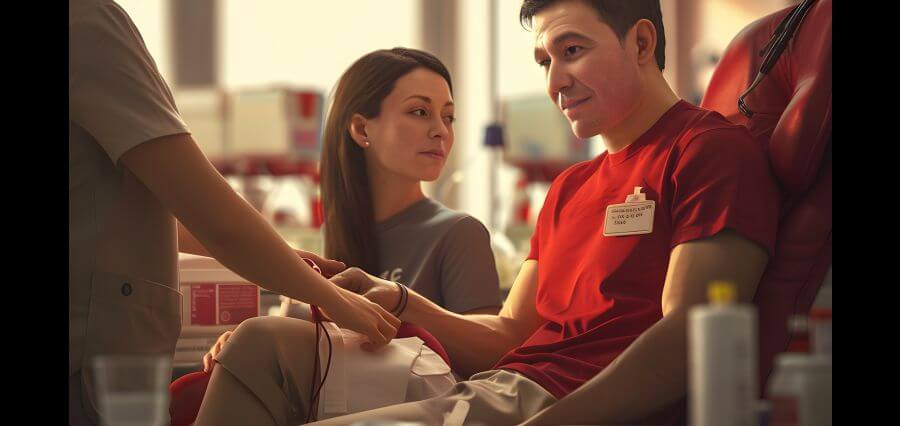Revolutionizing Outpatient Care
The healthcare industry has witnessed significant transformations in recent years, driven by advancements in technology, shifting patient expectations, and the need for more efficient and effective care delivery models. Outpatient care, in particular, has emerged as a critical area of focus, as healthcare providers strive to improve patient outcomes, reduce costs, and enhance the overall quality of care.
Let’s explore the innovations shaping the future of outpatient care, revolutionizing the way healthcare is delivered and experienced!
One of the most significant trends transforming outpatient care is the rise of telemedicine. Also known as telehealth, this technology-enabled platform allows patients to remotely consult with healthcare professionals, eliminating the need for in-person visits. Telemedicine has been instrumental in expanding access to care, particularly for rural or underserved populations, where healthcare resources may be limited. Moreover, it has reduced wait times, improved patient convenience, and enhanced the overall patient experience. According to a report by the American Telemedicine Association, telemedicine has been shown to reduce hospital readmissions by up to 50%, highlighting its potential to improve patient outcomes and reduce healthcare costs.
Another innovation revolutionizing outpatient care is the integration of artificial intelligence (AI) and machine learning (ML) algorithms. These technologies are being leveraged to analyze vast amounts of patient data, identify patterns, and predict patient outcomes. AI-powered chatbots, for instance, are being used to provide personalized health advice, facilitate appointment scheduling, and streamline patient communication. Additionally, ML algorithms are being employed to develop predictive models that identify high-risk patients, enabling healthcare providers to intervene earlier and prevent hospitalizations. A study published in the Journal of the American Medical Association found that AI-powered predictive models reduced hospitalizations by 12% among high-risk patients, underscoring the potential of these technologies to improve patient outcomes and reduce healthcare costs.
The increasing adoption of electronic health records (EHRs) is another significant innovation shaping the future of outpatient care. EHRs have enabled healthcare providers to access comprehensive patient information, streamline clinical workflows, and improve care coordination. Moreover, EHRs have facilitated the development of patient portals, which allow patients to access their medical records, request prescription refills, and communicate with healthcare providers. A study by the Office of the National Coordinator for Health Information Technology found that EHR adoption has improved patient safety, reduced medical errors, and enhanced patient engagement.
The growth of retail health clinics is another trend transforming outpatient care. These clinics, often located within retail settings, offer convenient, walk-in care for minor illnesses and injuries. Retail health clinics have been instrumental in reducing emergency department overcrowding, improving patient access to care, and reducing healthcare costs. According to a report by the Convenient Care Association, retail health clinics have reduced healthcare costs by up to 80% compared to emergency department visits.
The increasing focus on population health management is another innovation shaping the future of outpatient care. This approach involves healthcare providers working together to coordinate care, manage patient populations, and improve health outcomes. Population health management has been instrumental in reducing healthcare costs, improving patient outcomes, and enhancing the overall quality of care. A study published in the Journal of Healthcare Management found that population health management initiatives reduced healthcare costs by up to 15% and improved patient outcomes by up to 20%.
Finally, the growth of mobile health (mHealth) technologies is another trend revolutionizing outpatient care. mHealth technologies, such as wearable devices and mobile apps, are being used to monitor patient health, track vital signs, and provide personalized health advice. These technologies have been instrumental in improving patient engagement, enhancing health outcomes, and reducing healthcare costs. A study published in the Journal of Medical Systems found that mHealth technologies reduced hospitalizations by up to 25% among patients with chronic conditions.
In conclusion, the innovations shaping the future of outpatient care are transforming the way healthcare is delivered and experienced. Telemedicine, AI and ML algorithms, EHRs, retail health clinics, population health management, and mHealth technologies are all playing critical roles in improving patient outcomes, reducing healthcare costs, and enhancing the overall quality of care. As the healthcare industry continues to evolve, it is essential that healthcare providers, policymakers, and patients work together to harness the potential of these innovations, ensuring that high-quality, patient-centered care is accessible to all.
Moreover, as the healthcare industry moves forward, it is crucial that these innovations are integrated into existing care delivery models, ensuring seamless care coordination and minimizing disruptions to patient care. Additionally, healthcare providers must prioritize patient education and engagement, ensuring that patients are empowered to take an active role in their care and make informed decisions about their health.
Ultimately, the future of outpatient care is bright, with innovations holding immense promise to improve patient outcomes, reduce healthcare costs, and enhance the overall quality of care. As the healthcare industry continues to evolve, it is essential that we prioritize patient-centered care, leverage technology to improve care delivery, and foster collaboration among healthcare providers, policymakers, and patients. By doing so, we can create a healthcare system that is truly patient-centric, efficient, and effective, ensuring that high-quality care is accessible to all.
Read More: Click Here





